MENU
Haydn Wood, a short biography
From www.haydnwoodmusic.com
|
Haydn Wood was born into a large musical family in Slaithwaite, Yorkshire, in 1882. His father Clement, an innkeeper, was a brilliant amateur who conducted the local brass band. The family moved to Douglas, Isle of Man, where Haydn first studied the violin with his brother Harry, an orchestra conductor known as 'Manxland's King of Music'.
|
|
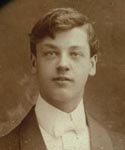 |
At age 15, Haydn entered the Royal College of Music in London where he excelled in violin, piano and composition. He was soon known as a prodigy, 'a bright-looking little lad, all smiles and collar, who plays the fiddle as it were the easiest thing in the world, as easy as eating jam tarts' (The Musical Times, 1 January 1898).
|
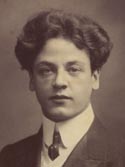 |
As a virtuoso violinist, he toured the British Isles and Empire for eight years with the famous Canadian soprano Emma Albani and her Concert Party.
|
|
In 1909, Haydn Wood married Savoyard soprano Dorothy Court whom he had met while they were both students at the Royal College of Music.
|
|
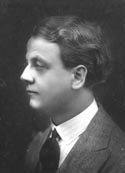 |
From 1913 to 1925, Haydn and Dorothy toured the British music halls, week after week, two or three shows a day, six days a week, spending their day off Sunday driving to the next town. Their act consisted of songs and ballads of his own composition, and well loved violin gems. Together with their pianist, Haydn played obbligatos on his violin while Dorothy was singing.
|
|
Haydn Wood became a multi-talented professional, as a well-known violinist, a successful composer of light and classical music, and a conductor of his own works. The BBC, who commissioned some of his compositions and for whom he conducted many concerts of his works, often broadcast his music.
|
|
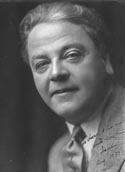 |
He succeeded in getting 180 songs and ballads published, as well as 86 light orchestral pieces (suites, overtures, morceaux de concert, entr'actes, intermezzi, rhapsodies, marches...), a piano concerto, a violin concerto, variations for cello and orchestra, works for string orchestra, a string quartet, solo works for piano, violin, flute, oboe, choral works with orchestra, and a musical play. He also composed a symphony, which was never published.
|
|
Haydn Wood died in 1959 in London.
|
|
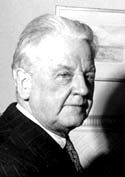 |
His heart-warming melodies have entertained millions of listeners of all classes over the first half of the 20th century. His legacy still casts a major influence over British Light Music today.
|

Contact, Links, Acknowledgements, Privacy
© Culture Vannin. Culture Vannin is the trading name for the Manx Heritage Foundation, registered charity 333 in the Isle of Man. Designed by 3 Legs Ltd.